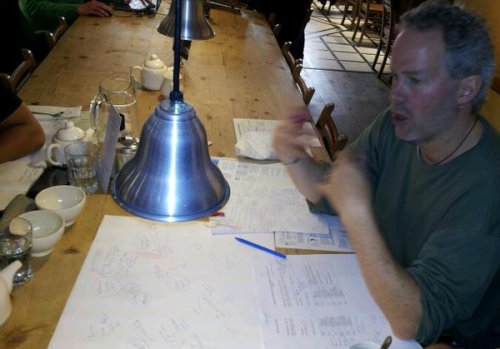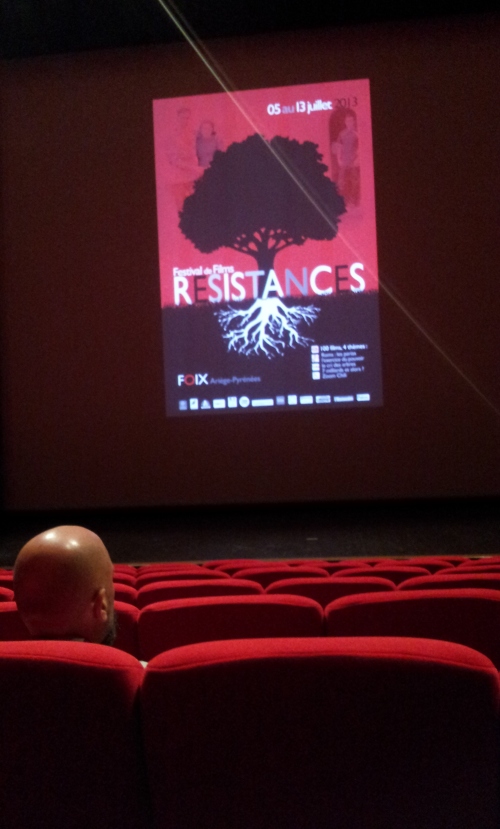
Development reporting suffers exactly the same sort of problems as does journalism that purports to cover conventional politics and economics – probably worse even. Too much focus on official sources and too little questioning of mainstream Western ideas about what countries and their citizens must do to “develop”. All the arguments of Fraudcast News with bells on when it comes to journalists failing to examine the realities of power, where true power lies and what ordinary people can do about it.
I thought it worthwhile spending a few days working up a grant proposal for the Innovation in Development Reporting Grant Programme run by the European Journalism Centre.
If it worked, I would get paid to do the journalism I attempt to champion in Fraudcast News while also leaving behind some of the same techniques for others who might do the same.
The idea, simple enough, was to produce a series of smartphone video reports from Mali’s Inner Niger Delta asking the question: “Whose development for Mali?” Rather than just present another foreign perspective on resource grabbing, the idea had been to conduct a mobile phone video report training for Malians, leaving behind the means for local people to then tell their stories as they wished rather than relying on outsiders.
Had the proposal succeeded, I would have been part of a visionOntv training team working together with local and international NGOs working on the ground in Mali. It didn’t, the judges deciding instead to award grants to a variety of ideas shared across a number of media outlets from across Western Europe.
I wasn’t blown away by the winners. None strikes me as addressing the underlying assumptions of “aid” and “development” set against the effects of global trade, banking, financial markets and the rest as they benefit rich countries and global corporations. Shame – it would have been good to have had an opportunity put the ideas into effect with some sort of budget in hand.
Sour grapes? I hope not.
This was the failed proposal:
Development dilemmas in Mali – whose tale to tell?
Malians will go to the polls this July with two military coups and a French-led assault on Tuareg separatist and Islamist rebel groups fresh in their memories. Yet what difference will elections make, however “free and fair”, to the lives of ordinary citizens?
Even before Mali’s recent upheavals in government, subsistence farmers and fishers in the Inner Niger Delta faced ever-lower water levels during annual monsoon floods. While climate change might play some part, far more pressing threats come from hydroelectric dams and river diversions for massive, often foreign-owned irrigation projects.
Locals complain of national politicians who ignore their plight. Bamako leaders, their ears bent towards external creditors, donors and their advisers, promote impossible development models. While chosen policies might boost abstract measures of economic health, they also ruin local livelihoods and the natural environment.
No news there – Mali faces the same economic binds as poor and not-so-poor countries the world over. All struggle with questions of how to meet their populations’ basic needs without paupering citizens and their environments. Only the strongest dare question Western development orthodoxies. Most of them, saddled with debt, fall prey to strings-attached foreign investments, debt-led growth models or demands for privatisations and deregulation. The evident damages of such policies is ignored in the rush to “develop”.
Mali’s various versions of the problem play out in domestic cotton production, gold mining and livestock rearing. None illustrates it better than water, lifeline to communities dotted along riverbanks and seasonal islands across the Inner Niger Delta. Their river’s annual rise and fall follows a cycle quite unlike the ever-upwards demands of compound growth charts. Projects promising fat returns for distant investors, and payback for historic creditors, spell devastation and displacement for locals. Abstract policy becomes practical reality at the sluice gates, where operators decide who gets what water when, the weaker and voiceless invariably losing out.
The global crisis of capitalism, now an open debate in rich countries, has been clear to the world’s poor during decades of Western development policies. Their voice has gradually grown stronger and more authoritative, thwarting biased agendas in world trade and climate talks and driving business at the UN’s General Assembly. As yet they lack the power to counterweight the agenda of rich-country governments, corporations and financial markets. With conventional institutions deadlocked and bereft of fresh ideas, civil societies around the world are among the few offering hopes of alternatives.
This assignment will amplify those grassroots voices and foster civil society dialogue in Mali and beyond. It will bypass gatekeepers in governments and conventional media by publishing mainly direct to the internet. Three highly experienced reporter-trainers will use smartphones to make multiple video reports in the Delta and teach local stakeholder groups to do the same. Their reporting techniques, perfected by London-based NGO visionOntv, cut out the costly time-dumps of video capture, editing and encoding. Reporters’ bi-lingual output, combined with that of workshop participants, will offer multiple perspectives on Mali’s water dilemmas, opening a wider window on development questions themselves.







